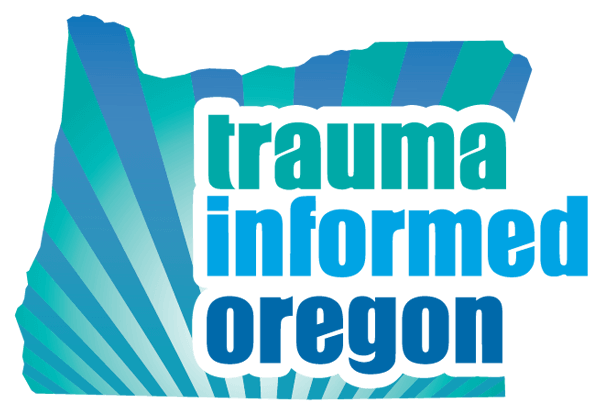Blog
 Our Climate Crisis and the Unbearable Interconnectedness of Issues
Our Climate Crisis and the Unbearable Interconnectedness of Issues

From Danielle Grondin, Instructional Designer, Trauma Informed Oregon
When I sit down and try to synthesize my feelings about our climate crisis, I also hold the heartbreak of the multitude of issues that are tangled in this topic. A sense of overwhelm rises to the forefront. With so many entry points and interconnected challenges, trying to convey anything of importance feels daunting and I am afraid I won’t be able to honor it all. With that disclaimer to touch back on, I offer a glimpse into what has been weighing on me as of late.
I write this from the comfort of my mostly air-conditioned home, which is a new feature thanks to the added income from my partner. The news plays over the speaker and I learn of an increasing death count from our most recent heatwave, adding gravity to the truly life-or-death matter of access to resources. Among today’s headlines alone, I also try and hold space for the news of deadly flash floods and local wildfires, abortion rights protests, continued accounts of systemic racism, updates from the insurrection sentencing, gun violence, houselessness, COVID, and the list goes on.
Understandably, I don’t hold it all very well, and instead, habitually reach for my phone and open Instagram for a dose of dopamine. I scroll for a bit and see posts about the high probabilities of crop failures to come, then a message about Monarch butterflies becoming endangered, followed by a friend posting about water shortages in their area. Between a dog video and an advertisement, there’s a recap of a delivery truck driver who collapsed in 110-degree heat in front of a person’s door camera while trying to deliver a package.
The company’s response to the incident stated that their employees are trained on how to navigate extreme heat temperatures, noting offerings of regular heat illness and injury prevention training. I have had that training, too. Not once did my mandatory heat safety training make space for the grief, shock, terror, and disillusionment that accompanies being alive in this time of increasingly common “extreme events.” How could any training even come close to providing the level of preparedness we need? Could we ever usher in the amount of healing that is required, or invite the system overhaul that is being asked of us?
From this place of pondering, the world can indeed start to feel unbearable. While watching people seemingly continue with their lives without a nod to the sheer intensity of our times, I sometimes oscillate between intense hopelessness, suppressed sadness, and a numb, hollowed acceptance. However, I feel fortunate to be a part of a work culture that not only nods to the intensity but also makes space for the tangled web that accompanies any topic that comes our way. You see, trauma is a vast subject matter, and it is paramount to make space for all the feelings that come with it, even if that means we will need to navigate discomfort together.
Moving into a time where extreme events will begin to be normalized, our workplaces have so much power to help make or break our collective capacity for response. As I feel into operating within a work culture anchored in the principles of trauma-informed care, I am making note of how even the most basic things can feel radical. Take, for instance, the Slack messages from our supervisor giving the team permission to take care of ourselves and our community when disturbing world events are unfolding. This permission slip has been extended many times since I started working at Trauma Informed Oregon, including when Justice Ketanji Brown Jackson was navigating insulting confirmation hearings, and when back-to-back shootings happened in a grocery store, a church, and yet another classroom, and recently when Roe v. Wade was overturned.
Trusting the invitations to feel can take time, but I am learning how turning towards the weight of things with others can create the conditions for deep healing. This process sometimes feels like alchemy. Dr. Karen Treisman says, “co-regulation is the precursor to self-regulation.” As a person in recovery from both mental health and addiction challenges, my ability to self-soothe in so-called healthy ways can feel especially difficult to access as the intensity increases around me. That said, realizing that neuroscience challenges these outdated notions of rugged individualism has felt reassuring, to say the least. We heal in connection with others, and trauma-informed workplaces can be a catalyst for us to expand our capacities to respond differently to these times.
